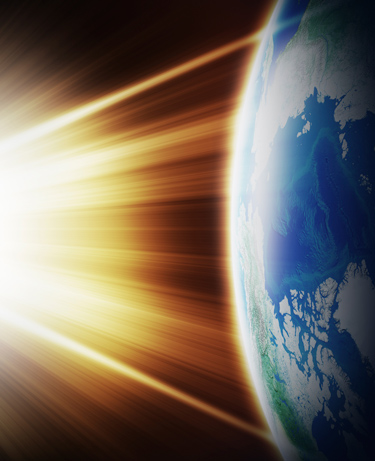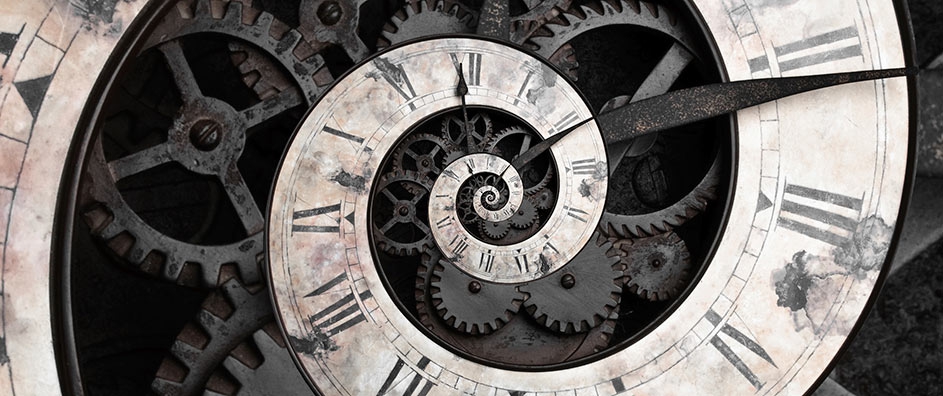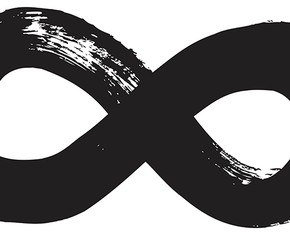The views expressed in our content reflect individual perspectives and do not represent the authoritative views of the Baha'i Faith.
In my last series of essays here at BahaiTeachings.org, called Tablets of Chrysolite, I suggested that while we sleep and dream, accurate, consolidated memories from each day of our lives enter the abstract kingdom, the next world.
Thus protected, I’ll suggest, these memories survive our death and inform our permanent identity when we arrive in our destined, eternal home. In The Hidden Words, Baha’u’llah promises:
Think not that which ye have committed hath been effaced in My sight. By My beauty! All your doings hath My pen graven with open characters upon tablets of chrysolite. – p. 44.
Depending on our deeds, this could become a welcome assurance, a frightening prospect or perhaps a bit of both.
Today, many people have lost or set aside their belief in the afterlife, and have few expectations about it. Baha’is, on the other hand, take it completely seriously. They most earnestly hope to live to put into action, to the best of their ability, the advice Baha’u’llah gives at the beginning of The Hidden Words:
O son of spirit! My first counsel is this: Possess a pure, kindly and radiant heart, that thine may be a sovereignty ancient, imperishable and everlasting. – p. 3.
But what does Baha’u’llah tell us about the next world and what we can expect there? It is certainly not a material world like the matrix from which our physical body has sprung. He says:
O son of being! Thy Paradise is My love; thy heavenly home, reunion with Me. Enter therein and tarry not. This is that which hath been destined for thee in Our kingdom above and Our exalted dominion. – ibid, p. 5.
 Clearly, an awe inspiring future awaits us in the next life, but we shall have to wait for the details. What can we know now?
Clearly, an awe inspiring future awaits us in the next life, but we shall have to wait for the details. What can we know now?
The Baha’i teachings say that the phenomena of time here in this world, defined as it is by our planet’s days, by our lunar months and solar years, must change when the rotating earth, the sun, moon and stars are absent from our new, immaterial spiritual reality in the afterlife. Abdu’l-Baha explains that time will still exist, but will necessarily be different:
Those who have passed on through death, have a sphere of their own. It is not removed from ours; their work, the work of the Kingdom, is ours; but it is sanctified from what we call ’time and place.’ Time with us is measured by the sun. When there is no more sunrise, and no more sunset, that kind of time does not exist for man. Those who have ascended have different attributes from those who are still on earth, yet there is no real separation. – Abdu’l-Baha, Abdu’l-Baha in London, p. 95.
Even in this world, if we think carefully about it, time is a construct of our minds and not just a physical phenomenon. To grasp this, think about the idea of now. While awake we are always in the now. But it is, we learn from science, about three seconds before we flick to our next now. Our attention keeps shifting and we have a different focus, a new now. Consider: Where is now when we read? Is it word by word? A speed reader has a ‘wider’ now and will grab a whole phrase at a time. How wide is your now?
This begs the question, how wide is now in the next world? Could whole days or even months or years or eons become our units of time perception? More challenging, could we zoom between different time perspectives? Just asking these strange questions opens up new possibilities. Forget our all-too-human condition of ignorance; we can more or less vaguely imagine the possibility of different kinds of time and of the different sorts of existence coming our way. Again, we certainly don’t know and cannot know the details, but we can see Abdu’l-Baha’s point: Time and space will be different in the next world.
Baha’u’llah tenderly brings to mind some of the realities of that new existence:
Blessed is the soul which, at the hour of its separation from the body, is sanctified from the vain imaginings of the peoples of the world. Such a soul liveth and moveth in accordance with the Will of its Creator, and entereth the all-highest Paradise. The Maids of Heaven, inmates of the loftiest mansions, will circle around it, and the Prophets of God and His chosen ones will seek its companionship. With them that soul will freely converse, and will recount unto them that which it hath been made to endure in the path of God, the Lord of all worlds. – Gleanings from the Writings of Baha’u’llah, p. 155.
These joyful meetings with those newly arrived in the next world occur in that new space and time, the spiritual existence we all can inherit.
The material world, seen from this different viewpoint, is highly constrained, regulated and limited by time. It involuntarily sweeps us along in the great river of unfolding history, one precise minute at a time. Our individual lives must ascend through this importunate flood tide, obeying the obligatory laws of nature and the clock, embedded in the human milieu all around us–but inevitably buoyed up towards the river’s surface, from which we ascend to a far less constrained existence (I am grateful to my friend, the late Ian Semple, for this striking image).
The next world may thus be a more abstract, magical land than the necessarily defined world we presently occupy. We occupy a far less constrained world after this life. The kings of the next world are its prophets and chosen ones, for their wishes predominate and lesser, imperfect beings have fewer powers to imagine or conceive. For us, the spiritual powers we acquire here in this world will emerge again in the next, and define the scope of our endeavours.
















Comments
Sign in or create an account
Continue with Googleor